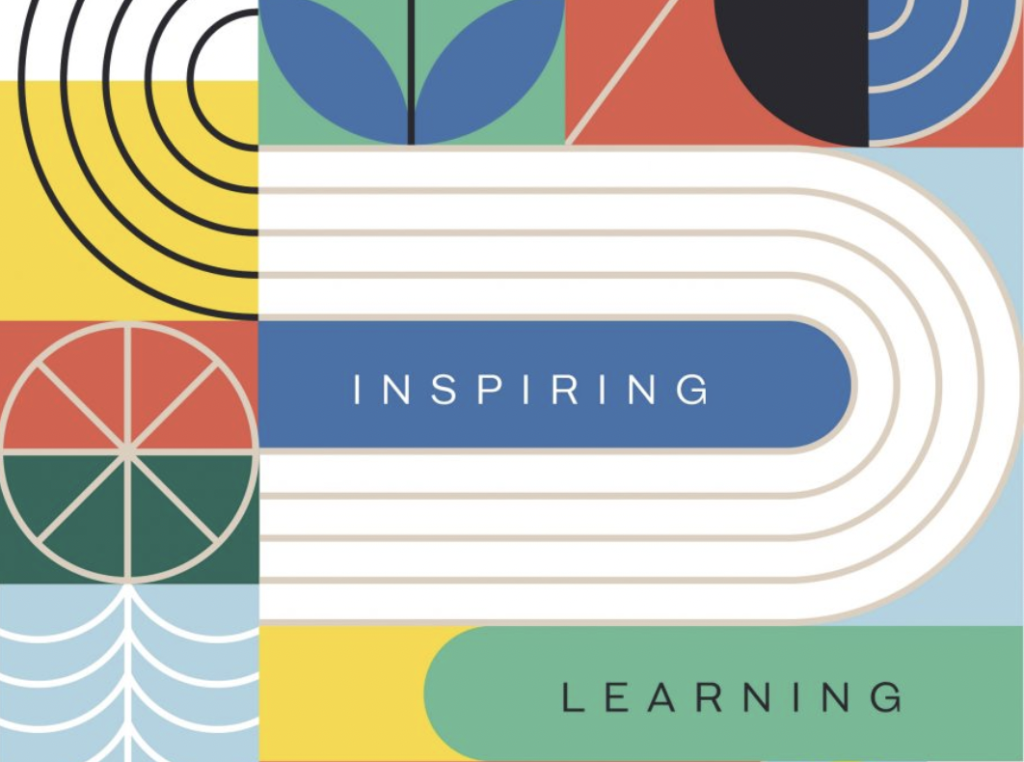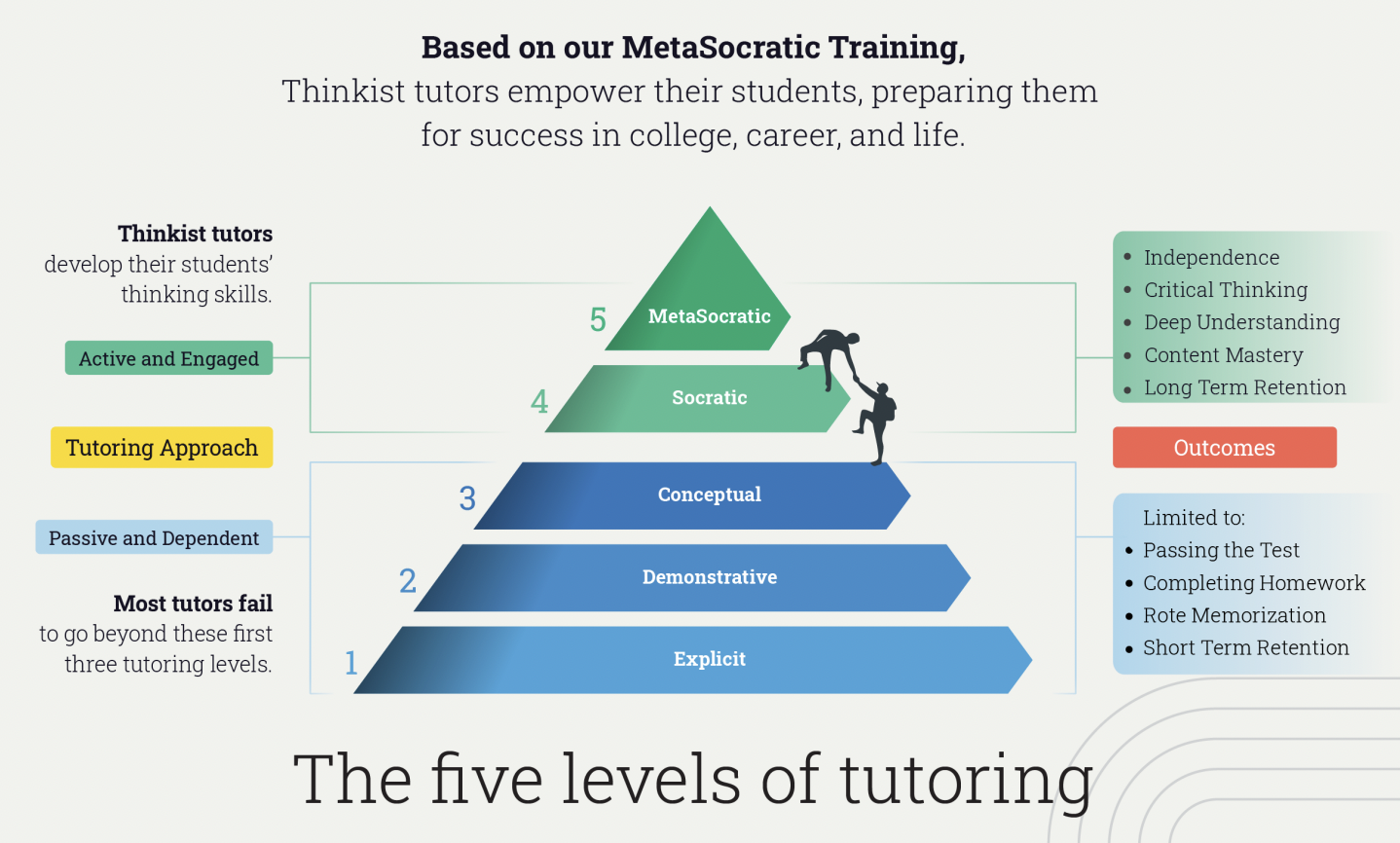Peer Mentoring Works…and Now It’s Scalable
Key Points
-
Thinkist is the next step in tutoring.
-
Instead of finding strangers on the internet, Thinkist trains your students on how to help your students.

The help your kid needs in math might be right down the hallway.
Thinkist is a San Diego edtech startup that helps schools set up and manage peer tutoring programs designed to both close equity gaps and build a diverse teacher pipeline—two significant areas of concern for every district and state leader. It’s a system-wide approach to accessible academic support that enables both the tutor and tutee to think more deeply and ask better questions, cementing the learning and their confidence far beyond the hour-long session.
I met founder Jared Wells 23 years ago when he helped Larry Rosenstock open High Tech High. As Assessment Director, Wells thought deeply about formative feedback and support strategies. He left four years later to return to his tutoring business which he had launched in 1995.
In 2006, Wells launched LearnSpeed to offer his tutoring management system as a subscription service. Partners have logged more than 40 million hours of tutoring on the platform.
Thinkist is the next step in tutoring. Instead of finding strangers on the internet, Thinkist trains your students on how to help your students. “By modeling the best teaching methods, kids learn for life,” said Wells.
Two decades in the tutoring business taught Wells that there are five levels of tutoring with increasing levels of student engagement.
- Explicit: tutor is doing almost all of the talking in a lecture based approach.
- Demonstration: explaining the information with confirmation of understanding.
- Conceptual: explain the information along with the why, and confirm understanding (tutor is still doing most of the talking).
- Socratic: introduction to learning how to learn–tutor models an inquiry-based questioning to help the student to arrive at insight and connections.
- MetaSocratic: the tutor is forming questions designed to help the student to form questions which break down the problem, gain insight, and form connections.

Through Wells’ process, peer tutors are trained to deliver level four and five level tutoring–high engagement, question focused help that promotes critical thinking, problem solving, and content mastery. Students ask questions and collaborate with the tutor mentor who helps them ask the best next question.
But to facilitate this level of engagement, Wells discovered that a more fundamental issue had to be addressed.
“The problem is often not in the concepts themselves but in the anxiety that students experience when learning new concepts. Many students feel embarrassed in front of their peers when they don’t know an answer to a question. So, in order to avoid this embarrassment, they avoid questions—and in doing so, they shut down their thinking,” said Wells.
This realization led Wells to a collaboration with Dr. Mark Manasse, Thinkist’s Chief Education Officer.
Through a chance meeting in 2021, Manasse and Wells merged their tutoring backgrounds to create a program that meets the needs of the whole student.
Dr. Manasse is Full Professor of Education, English, and English Language Acquisition at San Diego Mesa College, and serves as the Tutoring Program Coordinator and Teacher Education Program Co-Coordinator. He is also adjunct faculty at the University of San Diego in the MEd in TESOL, Literacy, and Culture Program. Over twenty years of research and practice have gone into the development of Manasse’s holistic approach to tutor training focused on developing the tutor and tutee, including their affective and cognitive domains through four categories: Self-Development, Thinking/Acting/Doing, Building Community, and Knowing/Systems.
The positive benefits of peer tutoring, particularly in Mathematics, from Preschool to Higher Education have been documented for more than four decades.
Jared wells
“If we want students to learn beyond the test and for tutors to gain skills as leaders and educational professionals, we need to normalize the confusion that comes with learning new content,” said Manasse.
Through Wells and Manasse’s combined MetaSocratic curriculum, Thinkist peer tutors are trained to support their students to engage more fully with the material they are learning, empathetically modeling curiosity through active questioning. This method helps both the tutor and tutee to learn how to make better sense of what they are learning. It also helps students become future leaders by developing effective critical thinking, problem-solving, and communication skills which build their capacity for future individual and collaborative learning.
“The positive benefits of peer tutoring, particularly in Mathematics, from Preschool to Higher Education have been documented for more than four decades*,” said Wells. The challenge has been the heavy load peer tutoring programs placed on school administrators. Through a comprehensive training program, deep knowledge of tutoring program management, and an advanced technology platform, Thinkist makes it easy to start up, scale, and maintain district-wide peer tutoring programs.
Thinkist is currently partnering with school districts in California, Pennsylvania, and Michigan on a mission to bring scalable peer tutoring to school districts across the country. District leaders interested in bringing peer tutoring to their schools can contact Thinkist at [email protected]
* A 2013 meta-analysis of 26 studies showed benefits of peer tutoring across k-12. A recent study showed strong benefits in K-12, especially upper elementary.
Check out these student reflections.
The New Pathways (#NewPathways) campaign will serve as a road map to the new architecture for American schools, where every learner, regardless of zip code, is on a pathway to productive and sustainable citizenship, high wage employment, economic mobility, and a purpose-driven life. It will also explore and guide leaders on the big education advances of this decade–how access is expanded and personalized, and how new capabilities are captured and communicated. When well implemented, these advances will unlock opportunities for all and narrow the equity gap. You can engage with this ongoing campaign using #NewPathways or submit an idea to Editor using the writing submission form..






0 Comments
Leave a Comment
Your email address will not be published. All fields are required.